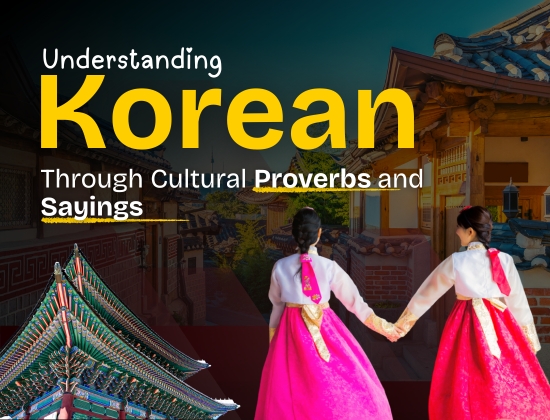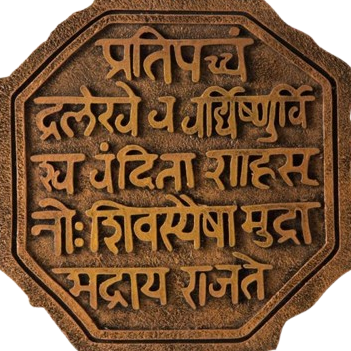
Understanding Korean Through Cultural Proverbs and Sayings
.
When we start learning a new language, it often begins with the basics: “hello,” “thank you,” numbers, maybe how to order a coffee. But once you move past the first steps, something beautiful happens. You begin to realise that language isn’t just about words. It’s a lens into how people think, live, and see the world.
In Korean, that lens is crystal clear in its proverbs and everyday sayings. These expressions aren’t just clever phrases. They’re like little windows into the soul of the culture. Whether it’s about family, patience, or the power of community, each one carries a story, a history, a truth.
Here are a few that made me stop and go, “That’s so real.”
1. 티끌 모아 태산 (Tikkeul moa taesan)
Literal translation: “Gather dust, and you get a mountain.”
Meaning: Small efforts add up over time.
This one hit me when I was trying (and failing) to stay motivated during my first month of learning Korean. My flashcards were a mess, my pronunciation felt off, and Duolingo kept scolding me. Then a Korean friend sent me this proverb and said, “Just a little a day. Trust the dust.”
It reminded me of the English phrase, “Rome wasn’t built in a day,” but there’s something humbler about the Korean version. It’s not about building something grand. It’s just collecting dust. Quietly. Patiently. Until one day, you realise you’ve built a mountain.
2. 호랑이도 제 말 하면 온다 (Horangi-do je mal hamyeon onda)
Literal translation: “Speak of a tiger, and it comes.”
Meaning: Speak of the devil
I laughed the first time I heard this at a café in Seoul. My friend and I were gossiping about a classmate who always arrived late, and just like that, she walked in. My friend looked at me wide-eyed and said, “호랑이도 제 말 하면 온다!”
The English equivalent is “Speak of the devil,” but the Korean version swaps in a tiger, an animal both feared and respected in Korean folklore. It says a lot about how nature, mythology, and language intertwine in Korean culture.
3. 개천에서 용 난다 (Gaecheon-eseo yong nanda)
Literal translation: “A dragon rises from a small stream.”
Meaning: Great people can come from humble beginnings
This proverb makes my heart swell every time I hear it. In a country where education and perseverance are prized, this saying is a reminder that your origins don’t define your future.
It’s the Korean version of “rags to riches,” but the imagery is more poetic. A dragon rising from a little stream? It’s cinematic. It speaks to hope, transformation, and the quiet power of potential.
4. 고생 끝에 낙이 온다 (Gosaeng kkeute nagi onda)
Literal translation: “After hardship comes happiness.”
Meaning: Endure now, and joy will follow
This one’s a favourite among students, soldiers, and really anyone who’s ever faced a challenge. I remember hearing it from my Korean teacher the night before our midterm. Her tone was half-joking, half-motherly: “고생 끝에 낙이 온다, right?”
It’s like saying “No pain, no gain,” but it feels more reassuring than pushy. It doesn’t glorify struggle. It simply acknowledges that it’s part of the journey.
5. 우물 안 개구리 (Umul an gaeguri)
Literal translation: “A frog in a well.”
Meaning: Someone with a narrow view of the world
I love this one because it’s visual and quietly wise. Picture a frog that’s lived its whole life at the bottom of a well. To it, the sky is only as big as that round opening above.
This proverb is often used to encourage open-mindedness, travel, and learning about the world beyond your comfort zone. It’s a gentle nudge to be curious and humble, something that resonates deeply in Korean culture, especially among the younger generation.
Culture in a Cup of Words
What I love about Korean proverbs is that they’re not just language tools. They’re emotional, cultural, even philosophical. They reflect values that are deeply rooted in Korean society: perseverance, humility, family, and the importance of the collective over the individual.
Learning these sayings helped me not only sound more natural when I spoke Korean, it helped me understand why things are said a certain way. Why Koreans place such emphasis on endurance, or respect, or self-reflection.
It’s not just about what you say. It’s about the meaning behind it.
Your Turn: Share the Wisdom
Do you have a favourite saying in your language, or one you’ve learned in another, that stuck with you? Maybe something your grandmother used to say, or a phrase you heard while traveling that made you pause?
Share it in the comments or tag us on Instagram @thelanguageskool. We’d love to collect wisdom from around the world. Who knows, maybe one day we’ll make a global proverb map.
Language Tip: The next time you're studying Korean, take a break from textbooks and dive into a few old sayings. You might just discover the heart of the language tucked inside a tiger, a frog, or a pile of dust.












